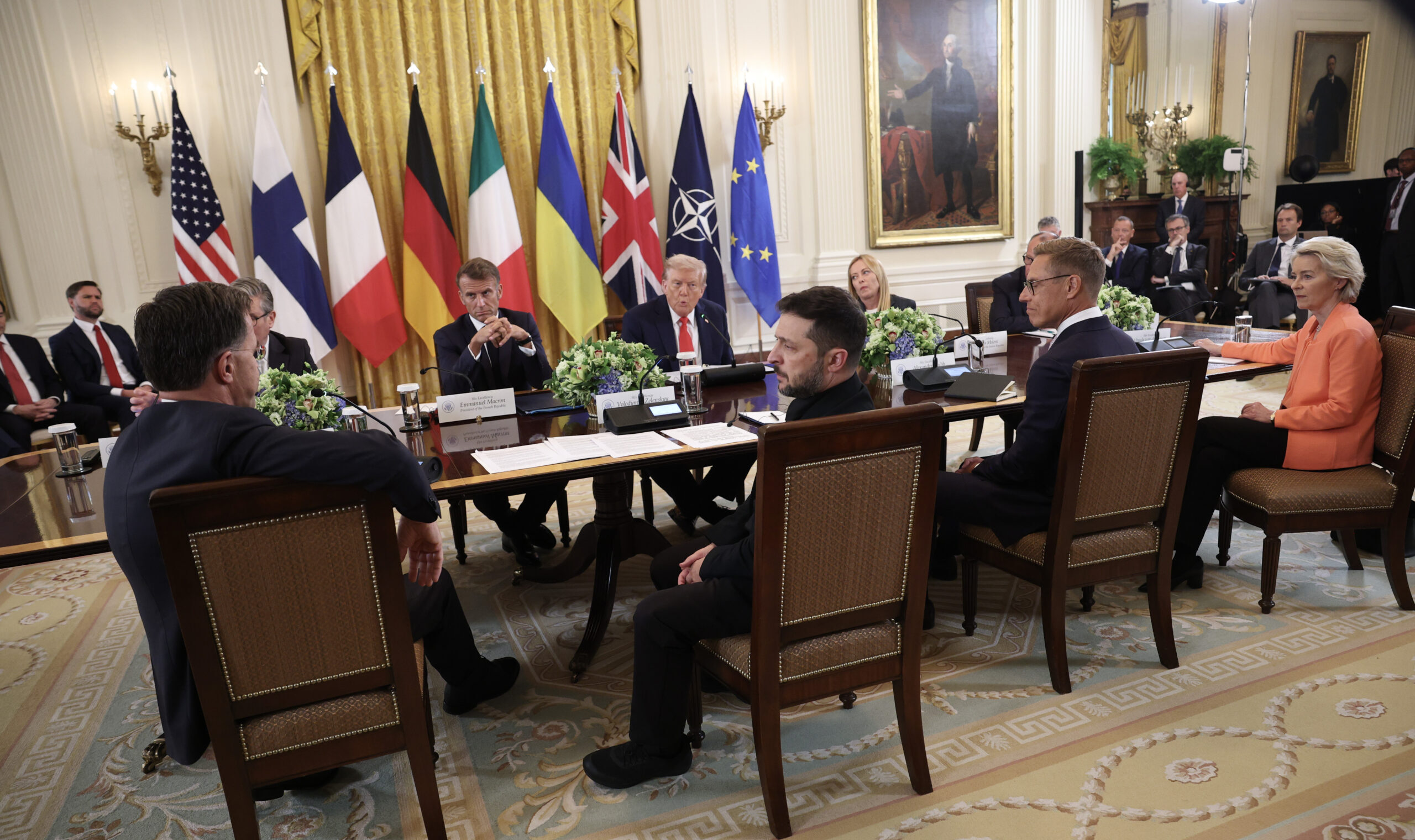One of the recurring motifs of President Donald Trump’s rhetoric these days is that he’s Mr. Peace, settling wars left and right across the globe. Certainly this is better than styling himself as Mr. War, who is a character who has been found wanting these past few decades and whose departure from the stage is not much mourned.
Of course, there’s a bit of slippage between style and substance. Yes, wars have been settled, although with how much American input is a matter of debate. (India flatly denies American involvement in the settlement of its short war with Pakistan, and the Azerbaijan–Armenia accord is little more than a mere recognition of Azerbaijan’s victory.) And, while glorified border disputes between Cambodia and Thailand or Congo and Rwanda are doubtless lamentable episodes to be deplored, the American taxpayer may be forgiven for wondering what they have to do with These States, and why our president is touting their dénouements as triumphs of U.S. policy. We may be glad they are over while also doubting that they are the stuff of a legacy. It is also good for a chuckle to see who is nominating Trump for the Nobel Peace Prize, which is itself a bit of a punchline. Who doubts the peaceful bona fides of Azerbaijan’s Aliyev regime, Benjamin Netanyahu, and the government of Pakistan?
On the other hand, in the first eight months of the second Trump administration, the U.S. has bombed the daylights out of Yemen’s Houthis (ineffectually) and was buffaloed by a junior partner into bombing the daylights out of Iran (also ineffectually, so far as anyone can tell); we’re still funding and arming the Ukrainians and Israelis, and we’re now directly menacing various South American potentates with war ships and strike plans. (Not to mention business as usual at AFRICOM, which is perhaps more dysfunctional than even CENTCOM.) All human aspiration exceeds reality, sure, but this is still pretty striking stuff for Mr. Peace.
But there’s a bigger problem with being Bizarro Bush (as Mr. Peace is known among his friends). The Ukraine war negotiations are illustrative. The two principals are fighting a war because they in fact believe it in their respective national interests to do so. Without a fundamental change to the underlying conditions—for example, the collapse of the Russian economy or the breaking of the Ukrainian defensive line—it looks like they’re going to keep going at it. The U.S. can’t do anything about it in particular, besides yelling shrilly from the sidelines. (Pulling the plug on American armaments for Ukraine, which are now being laundered with European money, is apparently deemed a political non-starter.) Similarly, it is unclear that there is much the U.S. could do to wrap up the Israel–Gaza war, although we could certainly stop actively fueling it. Mr. Peace is a great character on the TV, but in fact his pretensions to ordering the rest of the world are almost as delusional as Mr. War’s. Indeed, Mr. Peace is just the friendly inversion of Mr. War—not the world’s policeman, but the world’s therapist.
This all is to say that there’s less to the picture than meets the eye. The two classical texts for understanding America in this century are Sallust’s Jugurthine War and Seneca’s Hercules Furens. Needless to say, neither is terribly widely read. (“The thought of what America would be like / If the Classics had a wide circulation . . . / Oh well! / It troubles my sleep.”) The former is about an apparent footnote on Roman military history, a desert war in North Africa, in which Sallust found both symptoms and further causes of republican decay. In the latter, an apparently invincible hero at the zenith of his career is driven mad by powers beyond his control and destroys his own household. If you had to decoct these works down into neat little lessons, the first is that empire has unintended consequences; the second is that no human entity is all-powerful, and the worst sort of damage is self-inflicted. These conditions have not changed. Putting a smile instead of a scowl on the face of American imperialism does not make it more effective.
America’s orientation should not be toward managing affairs that do not touch our national interest. It’s not as if we don’t have problems at home. Solving the world’s problems is expensive and distracting, yes, but worse, it doesn’t work. Setting out with the goal of bringing peace on earth and goodwill toward men is less ghoulish than many alternatives, but perhaps no less misguided. This is especially true if we pick up uncompensated obligations along the way—security guarantees in peripheral regions, to pull an example out of the air. The president should not be Mr. Peace or Mr. War, but Mr. America.
The post Checking In on the Peace Administration appeared first on The American Conservative.


